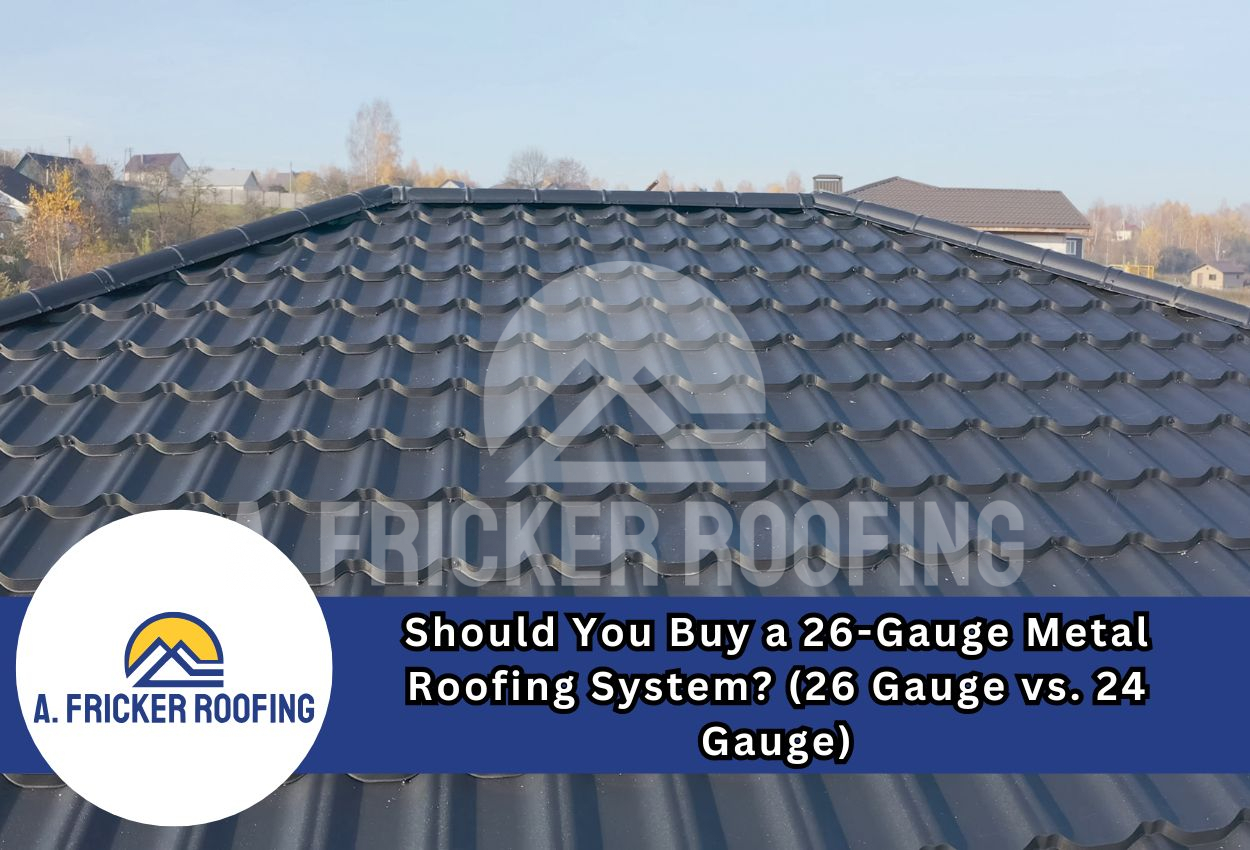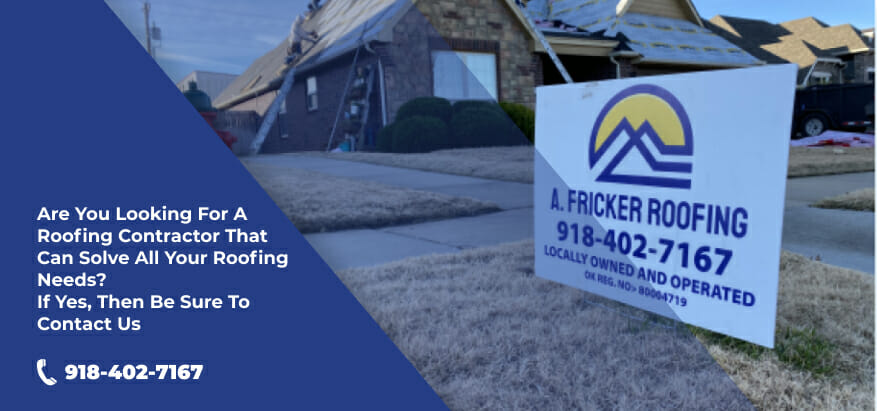If you’re planning to install a metal roof, one of the first choices you’ll face after deciding on the type of metal is the gauge (or thickness) of that metal. For most homeowners, this seems like just a minor detail that involves a quick choice.
However, the thickness of the metal panels plays a big role in how your roof performs over time, and if you make a more informed choice, you will get numerous benefits.
Two of the most common residential metal roofing options are 26 gauge and 24 gauge steel. So, which one should you choose? Well, that will depend on certain priorities, like your budget, needed durability, appearance, and local climate.
What Does Gauge Mean in Metal Roofing?

Gauge refers to the thickness of the metal panel that’s represented by a number that helps homeowners determine how thick the panel they’re choosing is. As a homeowner, you might be thinking that the higher the gauge number, the thicker the metal will be. However, it’s the exact opposite.
When it comes to metal roofing panels, the lower the gauge number, the thicker the metal. This means that a 24-gauge metal roof is thicker and stronger than a 26-gauge one.
Here’s a quick breakdown:
- 26-Gauge Steel = about 0.018 inches thick
- 24-Gauge Steel = about 0.024 inches thick
It might not sound like a huge difference, but in roofing, that small difference can impact how well your roof holds up against dents, weather, and time. It’s also important to note that there are multiple gauge sizes available, such as 22, 25, and 29, along with the options we’re discussing here.
When 26-Gauge Metal Makes Sense
For many homeowners, a 26-gauge metal roof is a solid, cost-effective choice. It’s commonly used in residential roofing systems and performs well under typical weather conditions. While it’s not for everyone, here are the moments when this thickness is the best option:
You Are Looking For A Budget-Friendly Option
A 26-gauge metal roof is one of the most affordable options. If you’re working with a small budget but still want the durability and appearance of a metal roof, this is a great option. It’s a big upgrade from asphalt shingles and lasts decades with professional installation. Choosing a 26 gauge can free up funds for other parts of your project as well, such as the gutters, insulation, or even solar panels.
You Only Experience Mild Weather
If you live in an area with mild winters, rare periods of hail, and gentle winds, there’s no need to pay extra for strength you won’t need. While it may not withstand a Category 3 hurricane, it performs well in mild sunlight, rain, and moderate seasonal changes.
You Need An Option For Exposed Fasteners
Metal roofing panels like R-panels or corrugated metal roofing panels that utilize exposed fasteners tend to be 26 gauge. These are often used for garages, barns, outbuildings, or even homes with a more rustic look. While they don’t have the sleek appearance of standing seam systems, they’re tough and cost-effective.
You’re Okay with Minor Cosmetic Trade-Offs
Metal roofing panels that are 26 gauge are more prone to oil canning and denting from impact (like hail or dropped branches). If you can live with a few visual imperfections or plan to install it on less visible parts of your property, this gauge gives you great value.
When 24-Gauge Metal Is the Better Investment
Metal that is 24 gauge is the heavy-duty choice for homeowners who want top-tier durability, cleaner appearances, and better long-term value. It’s not just thicker metal — it’s a stronger long-term strategy.
You Need Greater Durability
These panels are tougher and stiffer, which means they provide better resistance against dents, hail, and other forms of weather-related damage. You’ll thank yourself during the next big storm when your roof still looks brand new. This is the right choice if you’re planning to stay in your home long-term and don’t want to deal with premature wear or repairs.
You Want A Standing Seam System

Most standing seam metal roofs are designed with 24-gauge metal in mind. When you do the research, you will find that 24-gauge panels are the minimum requirement for most standing seam roofs.
Since the fasteners are hidden, thicker panels are preferred to keep the vertical seams intact and perform better in all weather conditions. Since standing seam systems are more of a premium product, it only makes sense to pair them with thicker, more resilient metal.
You Experience Snow and Wind
With 24-gauge metal, the roof is less likely to flex or warp under pressure. If you live outside Oklahoma and your area experiences heavy snowfall or strong wind gusts, the added thickness adds peace of mind. It also reduces the chances of oil canning, especially on large panels that span longer distances.
You’re Looking For Long-Term Value
The upfront cost is higher, yes. But over the lifetime of your roof, 24 gauge often works out to be the more economical choice. Fewer repairs, better structural integrity, and improved appearances all raise property value. This means that if you plan on selling your home, a 24-gauge standing seam metal roof is a powerful selling point.
You Want to Enhance Your Home’s Appearance
Both 24 and 26-gauge metal panels are visually quite similar, however, there is a slight advantage with 24-gauge metal. We already covered that the thicker panels are less vulnerable to oil canning, but there’s more. Thicker metal panels tend to lie flatter and smoother, which means fewer visual imperfections. If the look of your roof is a priority — especially for modern or high-end homes — 24 gauge is worth the investment.
Performance Comparison: 26 Gauge vs. 24 Gauge
| Feature | 26 Gauge | 24 Gauge |
| Thickness | Thinner roof panels | Thicker panels |
| Dent Resistance | Moderate | Higher |
| Snow/Wind Resistance | Good (Mild Climates) | Excellent (Harsh Weather) |
| Common Use Cases | Exposed fastener systems | Standing seam systems |
| Longevity | 40+ years (Typical) | 40 to 60 years (Typical) |
Other Factors to Keep in Mind When Making Your Choice
Choosing the gauge is just one piece of the puzzle. Here are a few other factors that can affect your roof’s performance:
- Coating and Paint System: Make sure the panels have a high-quality protective finish (like Kynar 500 or SMP) to resist fading and corrosion.
- Panel Profile: Exposed fastener panels vs. standing seam systems impact performance and curb appeal.
- Installation Quality: Even the best metal won’t perform well if it’s poorly installed. Choose an experienced roofing company that specializes in metal systems.
Also Read: Metal Roof Selection Tips For An Effective Roof Replacement
Still Unsure? Our Team Can Help!
To conclude, both 24-gauge and 26-gauge metals are good options for your metal roofs. While 26-gauge options are is slightly thinner, it’s durable and can withstand harsh weather. As a homeowner in Oklahoma, where there is not much snow, this metal roof thickness can be quite effective.
At A. Fricker Roofing and Waterproofing, we’ve installed numerous metal gauges across countless homes. Contact us today at (918) 402-7167 to learn more about how we can help you.

